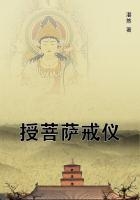PREFACE
The Baital-Pachisi, or Twenty-five Tales of a Baital is the history of a huge Bat, Vampire, or Evil Spirit which inhabited and animated dead bodies. It is an old, and thoroughly Hindu, Legend composed in Sanskrit, and is the germ which culminated in the Arabian Nights, and which inspired the "Golden Ass" of Apuleius, Boccacio's "Decamerone," the "Pentamerone," and all that class of facetious fictitious literature.
The story turns chiefly on a great king named Vikram, the King Arthur of the East, who in pursuance of his promise to a Jogi or Magician, brings to him the Baital (Vampire), who is hanging on a tree. The difficulties King Vikram and his son have in bringing the Vampire into the presence of the Jogi are truly laughable; and on this thread is strung a series of Hindu fairy stories, which contain much interesting information on Indian customs and manners. It also alludes to that state, which induces Hindu devotees to allow themselves to be buried alive, and to appear dead for weeks or months, and then to return to life again; a curious state of mesmeric catalepsy, into which they work themselves by concentrating the mind and abstaining from food - a specimen of which I have given a practical illustration in the Life of Sir Richard Burton.
The following translation is rendered peculiarly; valuable and interesting by Sir Richard Burton's intimate knowledge of the language. To all who understand the ways of the East, it is as witty, and as full of what is popularly called "chaff" as it is possible to be. There is not a dull page in it, and it will especially please those who delight in the weird and supernatural, the grotesque, and the wild life.
My husband only gives eleven of the best tales, as it was thought the translation would prove more interesting in its abbreviated form.
ISABEL BURTON.
August 18th, 1893.
PREFACE TO THE FIRST (1870) EDITION.
"THE genius of Eastern nations," says an established and respectable authority, "was, from the earliest times, much turned towards invention and the love of fiction. The Indians, the Persians, and the Arabians, were all famous for their fables.
Amongst the ancient Greeks we hear of the Ionian and Milesian tales, but they have now perished, and, from every account we hear of them, appear to have been loose and indelicate." Similarly, the classical dictionaries define "Milesiae fabulae" to be "licentious themes," "stories of an amatory or mirthful nature," or "ludicrous and indecent plays." M. Deriege seems indeed to confound them with the "Moeurs du Temps" illustrated with artistic gouaches, when he says, "une de ces fables milesiennes, rehaussees de peintures, que la corruption romaine recherchait alors avec une folle ardeur."My friend, Mr. Richard Charnock, F.A.S.L., more correctly defines Milesian fables to have been originally " certain tales or novels, composed by Aristides of Miletus "; gay in matter and graceful in manner. "They were translated into Latin by the historian Sisenna, the friend of Atticus, and they had a great success at Rome. Plutarch, in his life of Crassus, tells us that after the defeat of Carhes (Carrhae?) some Milesiacs were found in the baggage of the Roman prisoners. The Greek text; and the Latin translation have long been lost. The only surviving fable is the tale of Cupid and Psyche, which Apuleius calls 'Milesius sermo,' and it makes us deeply regret the disappearance of the others." Besides this there are the remains of Apollodorus and Conon, and a few traces to be found in Pausanias, Athenaeus, and the scholiasts.
I do not, therefore, agree with Blair, with the dictionaries, or with M. Deriege. Miletus, the great maritime city of Asiatic Ionia, was of old the meeting-place of the East and the West. Here the Phoenician trader from the Baltic would meet the Hindu wandering to Intra, from Extra, Gangem; and the Hyperborean would step on shore side by side with the Nubian and the Aethiop.
Here was produced and published for the use of the then civilized world, the genuine Oriental apologue, myth and tale combined, which, by amusing narrative and romantic adventure, insinuates a lesson in morals or in humanity, of which we often in our days must fail to perceive the drift. The book of Apuleius, before quoted, is subject to as many discoveries of recondite meaning as is Rabelais. As regards the licentiousness of the Milesian fables, this sign of semi-civilization is still inherent in most Eastern books of the description which we call "light literature," and the ancestral tale-teller never collects a larger purse of coppers than when he relates the worst of his "aurei." But this looseness, resulting from the separation of the sexes, is accidental, not necessary. The following collection will show that it can be dispensed with, and that there is such a thing as camparative purity in Hindu literature.
The author, indeed, almost always takes the trouble to marry his hero and his heroine, and if he cannot find a priest, he generally adopts an exceedingly left-hand and Caledonian but legal rite called "gandharbavivaha."The work of Apuleius, as ample internal evidence shows, is borrowed from the East. The groundwork of the tale is the metamorphosis of Lucius of Corinth into an ass, and the strange accidents which precede his recovering the human form.
Another old Hindu story-book relates, in the popular fairy-book style, the wondrous adventures of the hero and demigod, the great Gandharba-Sena. That son of Indra, who was also the father of Vikramajit, the subject of this and another collection, offended the ruler of the firmament by his fondness for a certain nymph, and was doomed to wander over earth under the form of a donkey.
Through the interposition of the gods, however, he was permitted to become a man during the hours of darkness, thus comparing with the English legend -Amundeville is lord by day, But the monk is lord by night.














